The Dragon Boat Festival, also known as Duanwu Festival, is a significant cultural event celebrated across China and in various parts of Asia. This festive occasion, marked by dragon boat races and the consumption of traditional foods like zongzi (sticky rice wrapped in bamboo leaves), holds deep historical and cultural significance. Among the myriad customs associated with Duanwu, boiling eggs during this period stands out as a practice that not only adds to the festive ambiance but also carries symbolic meanings. This article delves into the art of boiling Dragon Boat Festival eggs, exploring the cultural context, preparation methods, and the subtle nuances that make this culinary tradition unique.
The Cultural Significance of Boiling Eggs During Dragon Boat Festival
The boiling of eggs during the Dragon Boat Festival is steeped in tradition and symbolism. Eggs, being a symbol of new life and fertility, are believed to bring good luck and prosperity to the household. This belief stems from ancient Chinese folklore where eggs were often associated with the creation myths and the cycle of life. During the Duanwu Festival, boiling eggs is seen as a way to purify and strengthen one’s qi (life energy), ward off evil spirits, and ensure health and well-being for the family.
Moreover, the practice of boiling eggs ties in with the broader narrative of the festival, which commemorates the life and death of Qu Yuan, a patriotic poet who drowned himself in the Miluo River in protest against corruption and injustice. The boiling of eggs is sometimes interpreted as a gesture of respect and mourning, symbolizing the hope that Qu Yuan’s spirit finds peace and nourishment in the afterlife.
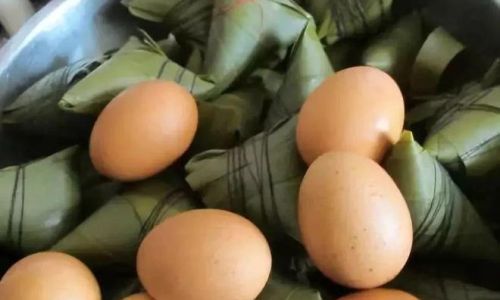
In some regions, the eggs are dyed in vibrant colors, usually red, which is considered an auspicious color in Chinese culture. This adds a festive touch to the eggs, making them not only a culinary delight but also a decorative item. The dyed eggs are often given as gifts to friends and family, spreading joy and good wishes during the festival season.
Choosing the Right Eggs
Before embarking on the journey of boiling Dragon Boat Festival eggs, it’s crucial to select the right eggs. Freshness is key when it comes to boiling eggs, as stale eggs can crack easily during the cooking process and may not have the desired texture or flavor. Here are a few tips for choosing the best eggs:
-
Check the Expiry Date: Ensure that the eggs you buy have a recent expiry date. Fresh eggs have a thicker, more resilient shell and a firmer yolk.
-
Inspect the Shell: A clean, smooth shell without cracks or spots indicates a fresh egg. Avoid eggs with rough or porous shells, as they may have been stored for too long.
-
Float Test: Place the egg in a bowl of water. If it sinks to the bottom, it’s likely fresh. If it floats, it’s older and may have lost some of its moisture content, making it less suitable for boiling.
-
Buy from a Reliable Source: Choose eggs from a reputable supplier or farm to ensure they are free-range and antibiotic-free, enhancing both the taste and nutritional value.
Preparing the Eggs for Boiling
Once you have your fresh eggs, the next step is to prepare them for boiling. This involves a few simple steps to ensure that the eggs cook evenly and develop a beautiful, smooth texture.
-
Cleaning the Eggs: Gently wash the eggs under cold running water to remove any dirt or debris from the shell. Be careful not to scrub too hard, as this can crack the shell.
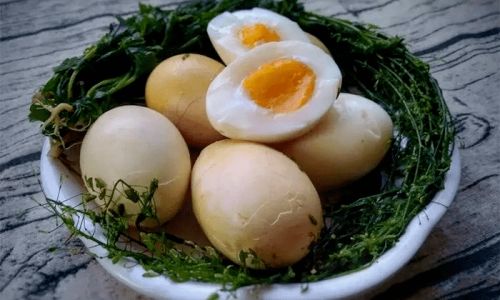
-
Bringing Water to a Boil: Fill a pot with enough water to fully submerge the eggs. Use cold water to start, as this helps to prevent the eggs from cracking due to sudden temperature changes. Place the pot on the stove and bring the water to a rolling boil.
-
Adding a Pinch of Salt: Adding a pinch of salt to the boiling water can help to prevent the eggs from cracking and also makes peeling the eggs easier after they’ve cooked.
-
Carefully Lowering the Eggs: Use a spoon or ladle to gently lower the eggs into the boiling water. This minimizes the risk of cracking the shells.
Boiling Techniques and Timing
The art of boiling Dragon Boat Festival eggs lies in the timing and technique. Different boiling methods can yield varying results, from soft-boiled eggs with runny yolks to hard-boiled eggs with creamy, fully set yolks. Here are a few popular boiling techniques:
-
Soft-Boiled Eggs: For soft-boiled eggs, cook the eggs for about 4-5 minutes after lowering them into boiling water. This will yield eggs with a runny yolk and a slightly set white.
-
Medium-Boiled Eggs: For a yolk that’s creamy but slightly firmer, boil the eggs for 6-7 minutes. This is a good compromise for those who like a bit of both textures.
-
Hard-Boiled Eggs: For fully set yolks and whites, boil the eggs for 9-12 minutes. The longer you boil, the firmer the yolk will be. Be careful not to overcook, as this can make the yolks dry and rubbery.
-
Ice Bath Method: To stop the cooking process and prevent the eggs from overcooking, transfer them immediately to an ice bath (a bowl of ice water) after boiling. This helps to set the egg whites and yolks perfectly and makes peeling easier.
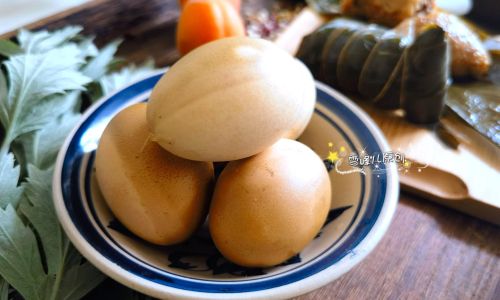
Peeling the Eggs
Peeling boiled eggs can sometimes be a challenge, especially if the eggs are fresh or if the shells are particularly tough. Here are a few tips for peeling Dragon Boat Festival eggs with ease:
-
Tap the Shell: Gently tap the egg all over with the back of a spoon or your hand to create small cracks in the shell. This allows water to seep in between the shell and the egg white, making it easier to peel.
-
Roll the Egg: Roll the tapped egg gently on a flat surface to loosen the shell further.
-
Peel Under Running Water: Peel the egg under cold running water. The water helps to wash away bits of shell and makes the peeling process smoother.
-
Use a Spoon: If you encounter stubborn bits of shell, use the edge of a spoon to gently scrape them off without damaging the egg.
Enhancing the Flavor and Presentation
Once the eggs are boiled and peeled, they can be enhanced with various flavors and decorations to make them more festive and appealing. Here are a few ideas:
-
Dyeing the Eggs: Use natural dyes made from vegetables, fruits, or tea to color the eggs. Red is a popular choice due to its auspicious symbolism, but other colors like blue, green, and yellow can also add a vibrant touch.
-
Adding Seasonings: Lightly brush the peeled eggs with soy sauce, sesame oil, or a mixture of spices before serving. This adds a layer of flavor and enhances their appeal.
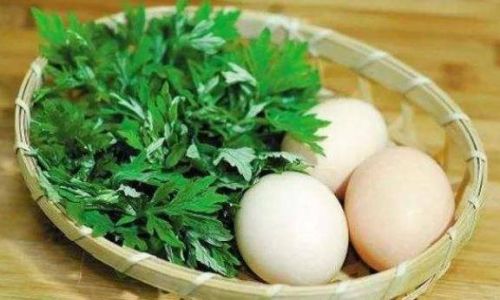
-
Creating Designs: Use melted wax or vinegar-based dyes to create intricate designs on the eggs. This technique, known as pysanky in Ukrainian folk art, adds a unique artistic element to the eggs.
-
Serving Suggestions: Arrange the boiled eggs on a platter with other festival foods like zongzi, glutinous rice cakes, and fruits. Garnish with fresh herbs or edible flowers for an elegant presentation.
Conclusion
Boiling Dragon Boat Festival eggs is not just a culinary practice; it’s a cherished tradition that connects people with their cultural heritage. By following the steps outlined in this article, from selecting the right eggs to enhancing their flavor and presentation, you can bring a touch of tradition and festivity to your Dragon Boat Festival celebrations. Whether you enjoy them plain, dyed in vibrant colors, or infused with delicious seasonings, these boiled eggs are a delightful addition to the festive spread, symbolizing new beginnings, prosperity, and the enduring spirit of tradition.
As you gather with family and friends to enjoy the dragon boat races and share in the joy of the season, remember the significance of these simple yet profound customs. They are not just rituals but carriers of stories, memories, and the wisdom of generations. So, let the boiling of Dragon Boat Festival eggs be a celebration of life, culture, and the beauty of tradition preserved through time.
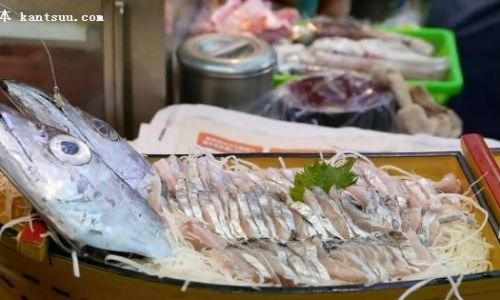
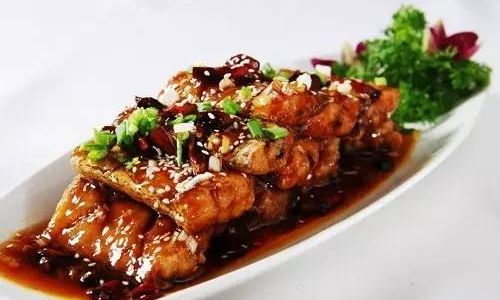
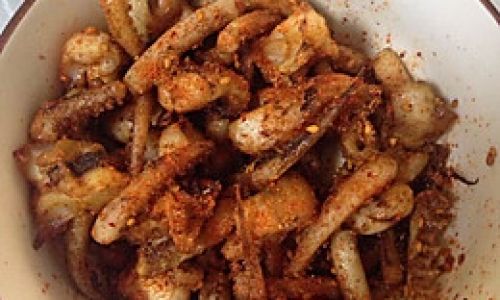
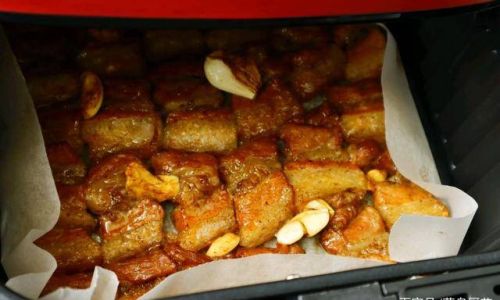
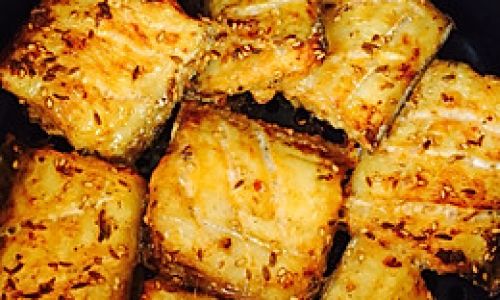
0 comments